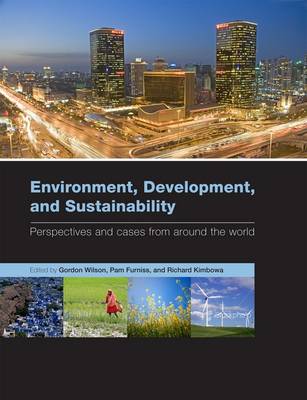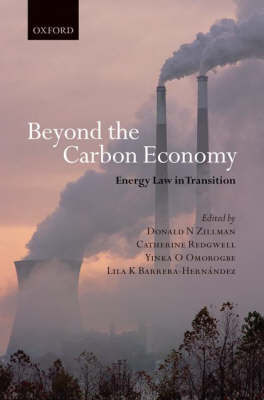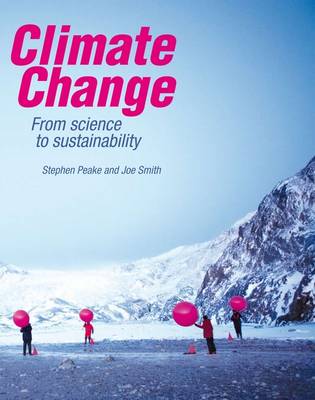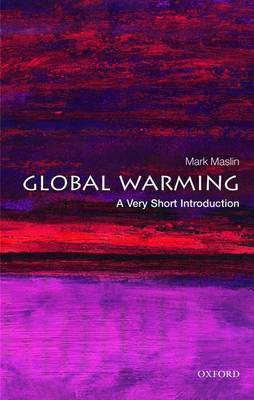As representatives from 146 countries gather in Paris for the 2015 UN Climate Change Conference, we’ve turned to our Very Short Introduction series for insight into the process, politics and topics of discussion of the conference. Is the UNFCCC process flawed?
The post Climate change and the Paris Conference: is the UNFCCC process flawed? appeared first on OUPblog.
By Kirsty McHugh, OUP UK
In the last of this week’s Countdown to Copenhagen blog posts, Gordon Wilson of the Open University writes about public action and climate change beyond the COP15 summit. He is Senior lecturer in Technology & Development, and has been writing and researching on development issues for many years. These include technological capabilities, professional expertise and practice, knowledge production through active social learning, and science and technology for development. He has also written extensively on sustainable development. He is one of the editors of Environment, Development, and Sustainability: Perspectives and cases from around the world.
Click here for the rest of the Countdown to Copenhagen blogs.
World leaders at COP15 may or may not put their pens to a deal where it is worth waiting for the ink to dry. But to place too much reliance on anything that raises hopes is more than creating a hostage to fortune. It amounts to abrogating our responsibilities as citizens through setting up straw people who fall down when they fail to deliver.
The history of public policy and action has shown that they are rarely the sole acts of benign, neutral government drawing the right conclusions from technical analyses. More likely they  represent a process of more-or-less ruly accommodations between many players and their different interests. Governments may be the most important of these players, but they are not the only ones. The history of public health initiatives in 19th century UK provides a useful lesson in this regard, the favourable social indicators of the Indian state of Kerala compared with the rest of India another. There is no reason to suppose that these lessons of how public needs come to be defined do not also apply to the international arena.
represent a process of more-or-less ruly accommodations between many players and their different interests. Governments may be the most important of these players, but they are not the only ones. The history of public health initiatives in 19th century UK provides a useful lesson in this regard, the favourable social indicators of the Indian state of Kerala compared with the rest of India another. There is no reason to suppose that these lessons of how public needs come to be defined do not also apply to the international arena.
With respect to climate change, we owe a great debt to the scientists who created a consensus under the umbrella of the United Nations Intergovernmental Panel on Climate Change and who have ensured that the issue is on national and international agendas. We should not forget, however, the potential role of informed citizens operating individually or collectively in defining public policies and actions. This role is more than ‘green’ behaviour in terms of, for example, doing our bit to reduce carbon footprints. It is also more than our right in many countries to elect and de-elect our governments, important as that is. (In any case, at an international scale, a world government that is democratically accountable is not even on the radar.) Nor does it necessarily concern our ability to mount 10, or even 100, demonstrations relating to Copenhagen. It does concern, however, our abilities to apply individual and collective pressure through a combination of working with, and where necessary confronting, governments and their international manifestations, and demonstrating alternatives.
I stress the qualifying adjective ‘informed’ which I don’t restrict to citizen understanding of the science of climate change and its likely impacts, nor of the social science of understanding socio-economic impacts. Such understandings are undoubtedly necessary to be ‘informed’ but they are not sufficient. Knowing the ‘facts’ is neither enough to change personal lifestyles nor to change po
By Kirsty McHugh, OUP UK
In today’s Countdown to Copenhagen post, Donald N. Zillman looks back at predictions he and his fellow authors of Beyond the Carbon Economy: Energy Law in Transition made two years ago, and discusses what today’s position is in light of next week’s COP15 conference. Professor Zillman is President of the University of Maine at Presque Isle and Edward Godfrey Professor of Law, University of Maine at Fort Kent.
Click here for the other Countdown to Copenhagen posts.
Slightly more than two years ago, a consortium of 33 authors from 20 nations put the finishing touches on a book called Beyond the Carbon Economy. The authors were law professors, practicing lawyers, and participants in public policy in the fields of energy, natural resources, and sustainability. We noted that 80 percent of the world’s energy for all purposes came from the three familiar hydrocarbon fuels—coal, petroleum, and natural gas. Even the most radical alternative scenarios indicated that the three hydrocarbon fuels would still be major sources of world energy two decades from today. But, compelling reasons demanded that businesses, government leaders, and citizens around the world look beyond carbon, and begin NOW.
 We identified five factors compelling that redirection. The first was climate change and other environmental harms from the use of the fossil fuels. When we wrote, the April 2007 Report of the Intergovernmental Panel on Climate Change had just been released. It made the clearest case yet that climate change was real, was happening now, and that it clearly implicated the fossil fuels.
We identified five factors compelling that redirection. The first was climate change and other environmental harms from the use of the fossil fuels. When we wrote, the April 2007 Report of the Intergovernmental Panel on Climate Change had just been released. It made the clearest case yet that climate change was real, was happening now, and that it clearly implicated the fossil fuels.
The second factor was the myriad of concerns over energy security. We noted: “Were the carbon fuels equally distributed around the world, and were rules of the market economy fully accepted by both producer and consumer nations, the problem would be largely one for economics to solve.” They aren’t and wars, civil unrest, political boycotts, and the like have kept much of the world uneasy since the early 1970s.
The third factor encouraging the move beyond carbon is the enormous increase in demand for energy. China and India are just the most visible examples of nations moving rapidly to a time when a substantial proportion of their population expect personal motorized transport, fossil fuel heated residences and workplaces, and steady access to electricity.
The fourth, and most controversial of the factors, is the potential decline in supply of the fossil fuels, primarily petroleum. The authors recognized the range in views from a strong belief in “peak oil” theories to a confidence in market economics that supports the view that “nothing would increase supplies like $200 per barrel oil.” Even advocates of the latter view, however, have to deal with the heavy investment costs of bringing more fossil fuels to the market.
The fifth factor–“the most sobering of them all”– is the energy needs of the one third of the world’s population who live today without modern energy services. The carbon economy has done them few favors and the future looks even more bleak for them than the present. Even if compassion or a rough sense of equity don’t prompt action, the prospect of dozens of failed states turned to terrorist havens should.<
By Kirsty McHugh, OUP UK
Joe Smith is senior lecturer in environment in the social sciences faculty at The Open University and Co-Director of the Cambridge Media & Environment Programme which runs seminars on environmental change and development issues for senior media decision makers. Joe is initiator and chair of Interdependence Day a new communications and research project. He is also co-author (with Stephen Peake) of Climate Change: From Science to Sustainability, an interdisciplinary introduction that takes the reader from keystones of the underlying science – and not just the headlines – through to the philosophical and political consequences of climate change. In his Countdown to Copenhagen post, he talks about ‘truth’ and climate change in the light of the recent hacked emails at the University of East Anglia.
For the rest of the Countdown to Copenhagen posts, click here.
What to say about ‘truth’ and climate science in the context of what appears to be the theft of ten years worth of private emails between climate researchers by mischief-making hackers? I’m not going to comment further on the incident but it proves once again that there are some highly motivated people out there who want to tear up the narrative that climate change is human caused and requires urgent action. There are a small number of high profile media commentators who have savoured the opportunity to insist once again that climate change is a massive science fraud and big-state tax plot.
 How should we investigate the notion that humans are changing the climate? Who is best equipped to advise on how to behave in an experiment that we may only get to run once? If I wanted to know about a very complex scientific problem I’d start looking for answers by running the biggest scientific peer review process in human history. The IPCC is exactly that. It was set up to do the best job possible in making sense of an enormously demanding intellectual question: does human activity influence the climate – in the past, present and future?
How should we investigate the notion that humans are changing the climate? Who is best equipped to advise on how to behave in an experiment that we may only get to run once? If I wanted to know about a very complex scientific problem I’d start looking for answers by running the biggest scientific peer review process in human history. The IPCC is exactly that. It was set up to do the best job possible in making sense of an enormously demanding intellectual question: does human activity influence the climate – in the past, present and future?
The dominant model of science is one of aggressive (individual or lab based) competition to get the most convincing arguments supported by publicly published evidence, and to break new ground with original and supportable arguments. As an outsider looking in I think that that can be an unproductive form of ‘knowledge generation’, but one thing for sure is that it isn’t designed to produce consensus around such a complex topic as climate change. The IPCC is a review process with only a very small secretariat, and the thousands of scientists who generate the work across many disciplines that make up the raw material of the review are all highly competitive. The IPCC reports should be all the more disturbing for the fact that they point to so much willingness to agree within the science community on the headline themes.
Why then does a substantial minority of the population feel more confidence in Lords Monckton or Lawson, or the Daily Mail’s Melanie Phillips? It is the intellectual equivalent of backing a Sunday pub team of vain injured veterans against Real Madrid’s best side. We’ve all got pretty good feeling for who has the better f
By Kirsty McHugh, OUP UK
Next week sees the beginning of the United Nations Climate Change Conference, held in Copenhagen. The aim of the conference is to reach an ambitious global agreement including all the countries in the world. This week OUPblog will be posting a series of Countdown to Copenhagen blogs from some of our authors. Kicking things off is Professor Mark Maslin, who is the Head of Department and Director of the Environment Institute at University College London, and the author of Global Warming: A Very Short Introduction.
Climate change is the most important science issue of the 21st century, challenging the very structure of our global society. The COP 15 meeting at Copenhagen provides a real opportunity for global society to decide how to deal with this major threat. We already know that atmospheric carbon dioxide has risen from a pre-industrial level of 280 ppmv to 389 ppmv by 2009. This has already caused climate change; with clear evidence for a 0.75°C rise in global temperatures and 22 cm rise in sea level during the 20th century. In the last 150 years the twelve warmest years on record have all occurred in the last thirteen years: 1998 was the warmest, followed by 2005, 2002, 2003 and 2004, while 2008 was the 10th warmest year on record. The threat of climate change has been assessed in the Intergovernmental Panel on Climate Change (IPCC) 2007 synthesis report. Based on 23 complex climate models they predict that global temperatures by 2100 could rise by between 1.1°C and 6.4°C (best estimates being 1.8˚C to 4˚C). Sea level could rise by between 28 cm and 79 cm, more if the melting of Greenland and Antarctica accelerates. The potentially effects of climate change on human society are devastating, including drastic changes in global health, agriculture, the economy, water resources, coastal regions, storms and other extreme climate events, and biodiversity. The IPCC states that the scientific evidence for global warming is unequivocal and there is very high confidence that this is due human activity. This view is supported by a vast array of learned organisations, including the Royal Society and American Association for the Advancement of Science. This is why the negotiations at COP15 at Copenhagen are so important.
 I believe a legally binding agreement to limited global warming to a maximum of 2˚C above pre-industrial temperatures is required at Copenhagen. This has profound implications as the science tell us this is equivalent to putting a total of a trillion tonnes of carbon in the atmosphere. As we have already emitted half a trillion tonnes the political challenge at Copenhagen and COP16 in Mexico is how to limit the world to just another half a trillion tonnes of carbon. The first challenge is the essential involvement of Developing countries in long-term carbon reduction targets because the scale their current and future pollution. Of course this will only occur is the rich countries such as the EU and USA lead the way with stringent cuts. It is also moral imperative, however, that people in the poorest countries have the right to develop and to obtain the same life style we currently enjoy. We also need massive investment in alternative/renewable power sources and low carbon technology. One of the key ways that Developing Countries may be encouraged to achieve reduction targets given a positive lead by the western world would be through carbon trading and other financial incentives. The s
I believe a legally binding agreement to limited global warming to a maximum of 2˚C above pre-industrial temperatures is required at Copenhagen. This has profound implications as the science tell us this is equivalent to putting a total of a trillion tonnes of carbon in the atmosphere. As we have already emitted half a trillion tonnes the political challenge at Copenhagen and COP16 in Mexico is how to limit the world to just another half a trillion tonnes of carbon. The first challenge is the essential involvement of Developing countries in long-term carbon reduction targets because the scale their current and future pollution. Of course this will only occur is the rich countries such as the EU and USA lead the way with stringent cuts. It is also moral imperative, however, that people in the poorest countries have the right to develop and to obtain the same life style we currently enjoy. We also need massive investment in alternative/renewable power sources and low carbon technology. One of the key ways that Developing Countries may be encouraged to achieve reduction targets given a positive lead by the western world would be through carbon trading and other financial incentives. The s



 represent a process of more-or-less ruly accommodations between many players and their different interests. Governments may be the most important of these players, but they are not the only ones. The history of public health initiatives in 19th century UK provides a useful lesson in this regard, the favourable social indicators of the Indian state of Kerala compared with the rest of India another. There is no reason to suppose that these lessons of how public needs come to be defined do not also apply to the international arena.
represent a process of more-or-less ruly accommodations between many players and their different interests. Governments may be the most important of these players, but they are not the only ones. The history of public health initiatives in 19th century UK provides a useful lesson in this regard, the favourable social indicators of the Indian state of Kerala compared with the rest of India another. There is no reason to suppose that these lessons of how public needs come to be defined do not also apply to the international arena. We identified five factors compelling that redirection. The first was climate change and other environmental harms from the use of the fossil fuels. When we wrote, the April 2007 Report of the
We identified five factors compelling that redirection. The first was climate change and other environmental harms from the use of the fossil fuels. When we wrote, the April 2007 Report of the  How should we investigate the notion that humans are changing the climate? Who is best equipped to advise on how to behave in an experiment that we may only get to run once? If I wanted to know about a very complex scientific problem I’d start looking for answers by running the biggest scientific peer review process in human history. The IPCC is exactly that. It was set up to do the best job possible in making sense of an enormously demanding intellectual question: does human activity influence the climate – in the past, present and future?
How should we investigate the notion that humans are changing the climate? Who is best equipped to advise on how to behave in an experiment that we may only get to run once? If I wanted to know about a very complex scientific problem I’d start looking for answers by running the biggest scientific peer review process in human history. The IPCC is exactly that. It was set up to do the best job possible in making sense of an enormously demanding intellectual question: does human activity influence the climate – in the past, present and future? I believe a legally binding agreement to limited global warming to a maximum of 2˚C above pre-industrial temperatures is required at Copenhagen. This has profound implications as the science tell us this is equivalent to putting a total of a trillion tonnes of carbon in the atmosphere. As we have already emitted half a trillion tonnes the political challenge at Copenhagen and COP16 in Mexico is how to limit the world to just another half a trillion tonnes of carbon. The first challenge is the essential involvement of Developing countries in long-term carbon reduction targets because the scale their current and future pollution. Of course this will only occur is the rich countries such as the EU and USA lead the way with stringent cuts. It is also moral imperative, however, that people in the poorest countries have the right to develop and to obtain the same life style we currently enjoy. We also need massive investment in alternative/renewable power sources and low carbon technology. One of the key ways that Developing Countries may be encouraged to achieve reduction targets given a positive lead by the western world would be through carbon trading and other financial incentives. The s
I believe a legally binding agreement to limited global warming to a maximum of 2˚C above pre-industrial temperatures is required at Copenhagen. This has profound implications as the science tell us this is equivalent to putting a total of a trillion tonnes of carbon in the atmosphere. As we have already emitted half a trillion tonnes the political challenge at Copenhagen and COP16 in Mexico is how to limit the world to just another half a trillion tonnes of carbon. The first challenge is the essential involvement of Developing countries in long-term carbon reduction targets because the scale their current and future pollution. Of course this will only occur is the rich countries such as the EU and USA lead the way with stringent cuts. It is also moral imperative, however, that people in the poorest countries have the right to develop and to obtain the same life style we currently enjoy. We also need massive investment in alternative/renewable power sources and low carbon technology. One of the key ways that Developing Countries may be encouraged to achieve reduction targets given a positive lead by the western world would be through carbon trading and other financial incentives. The s